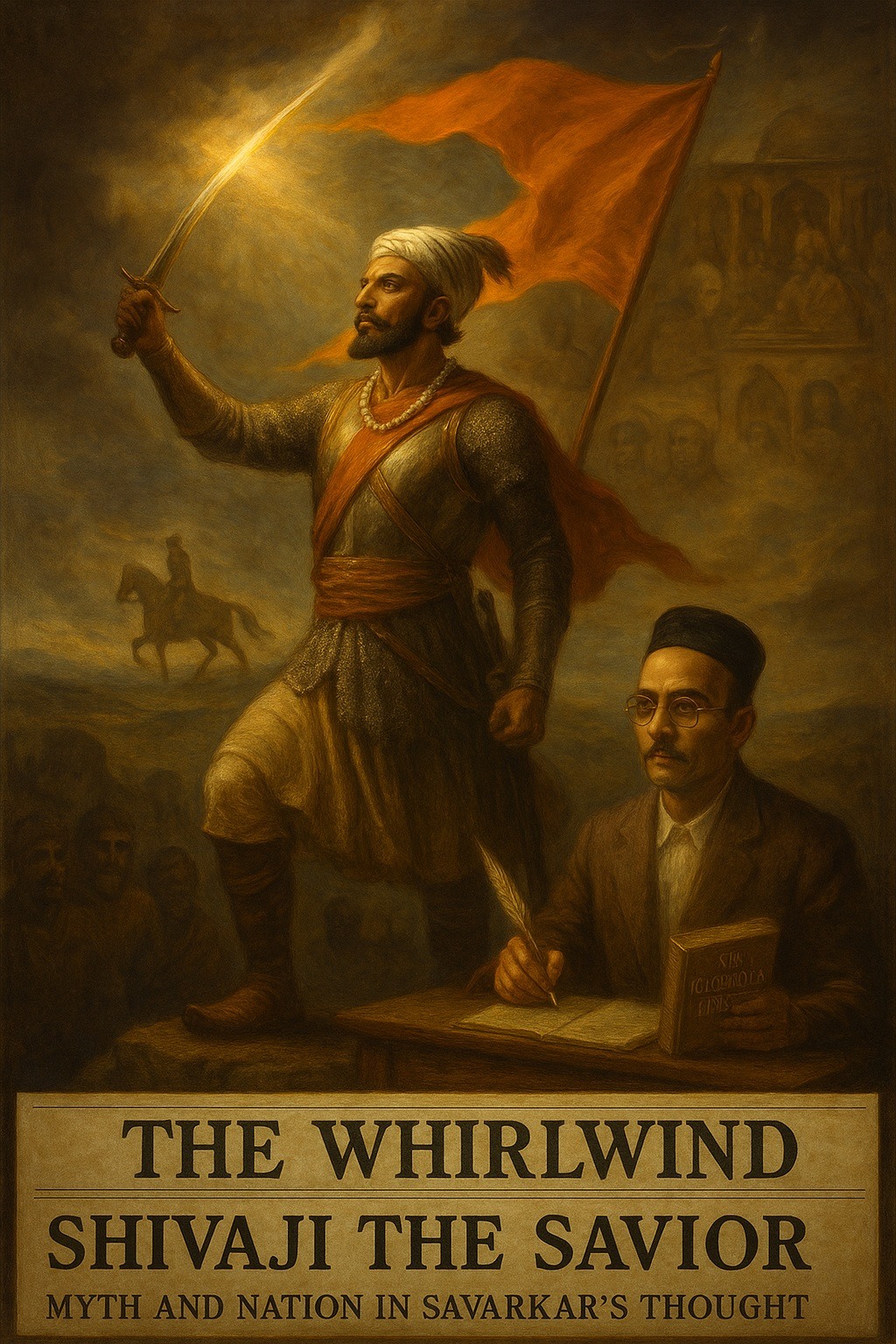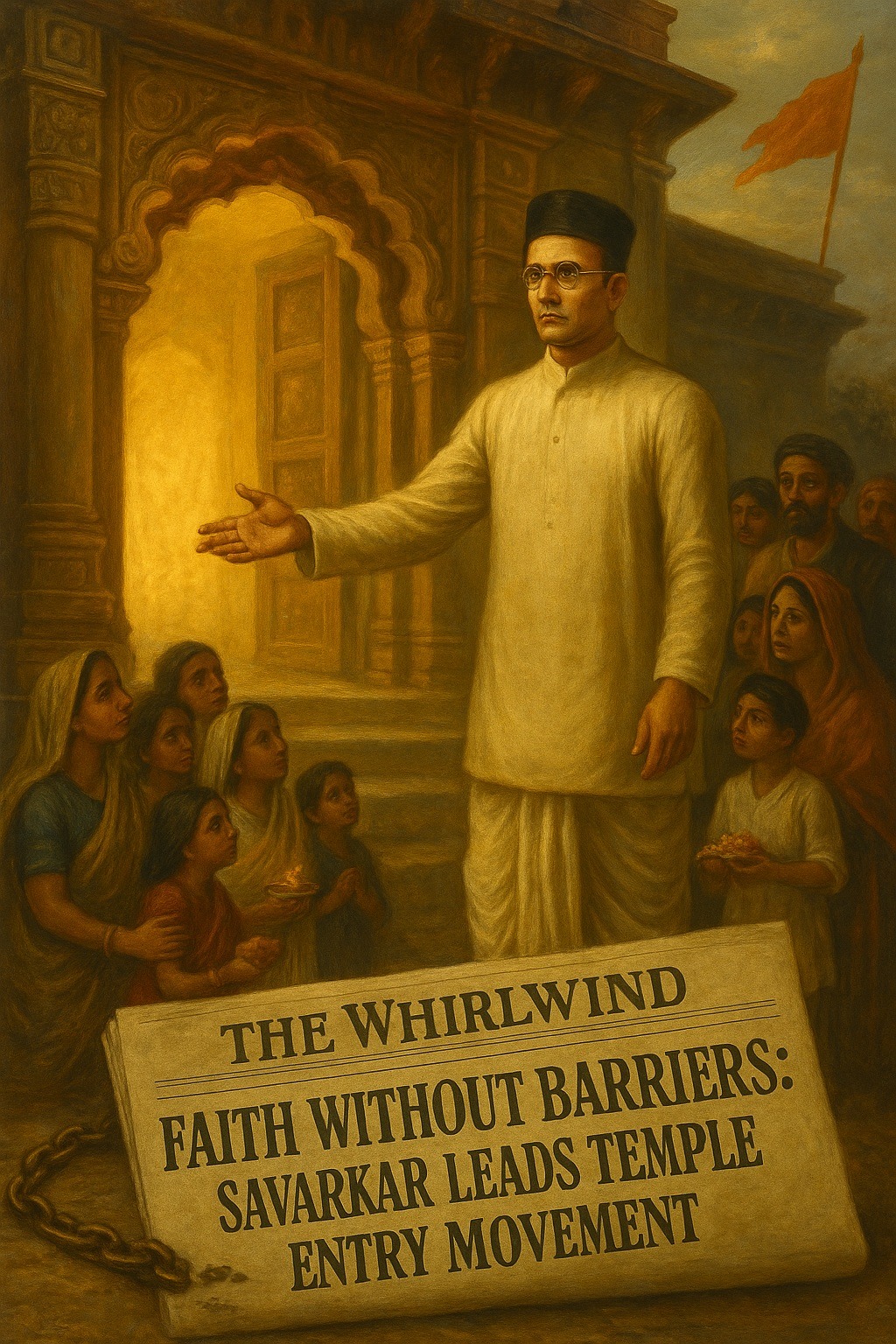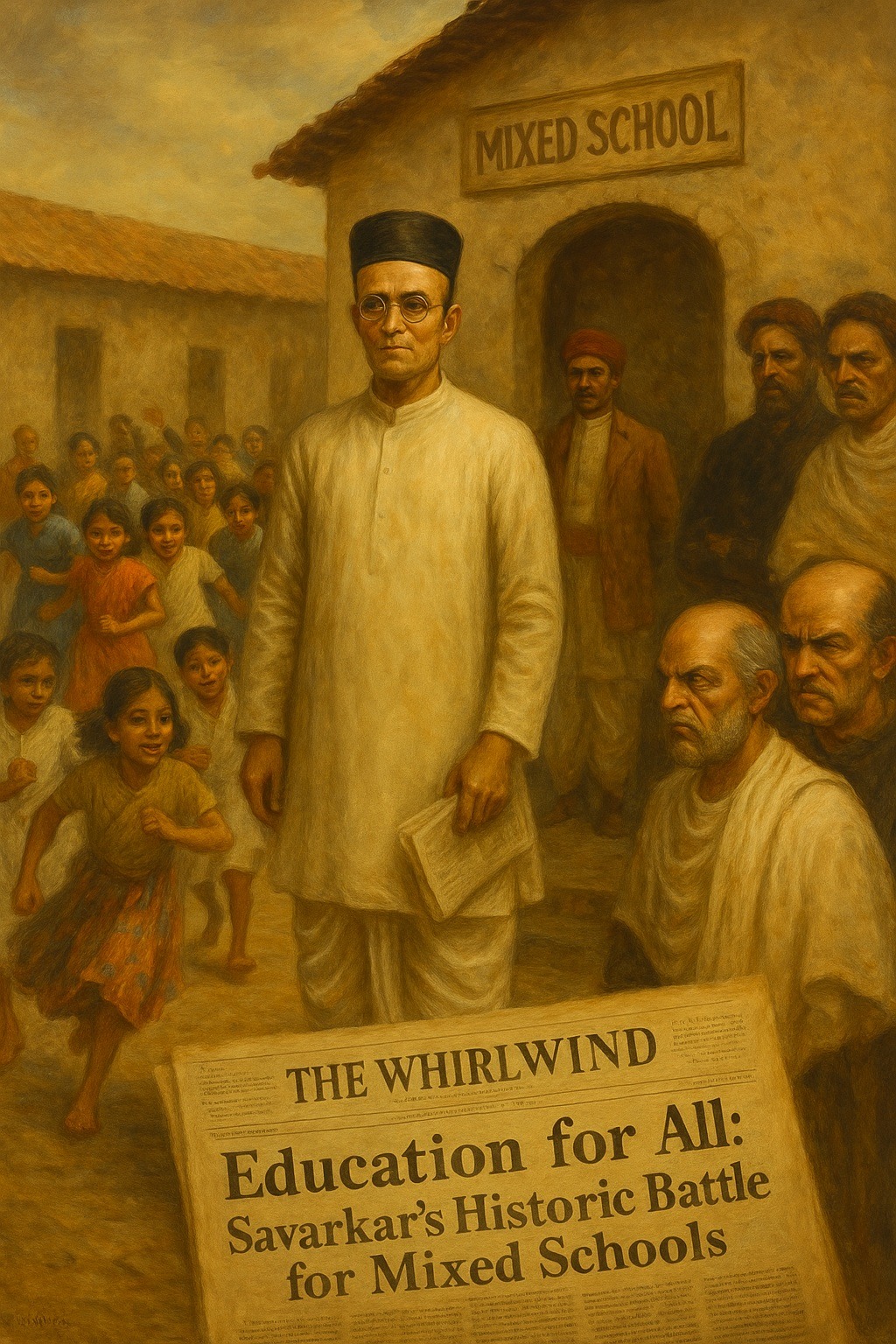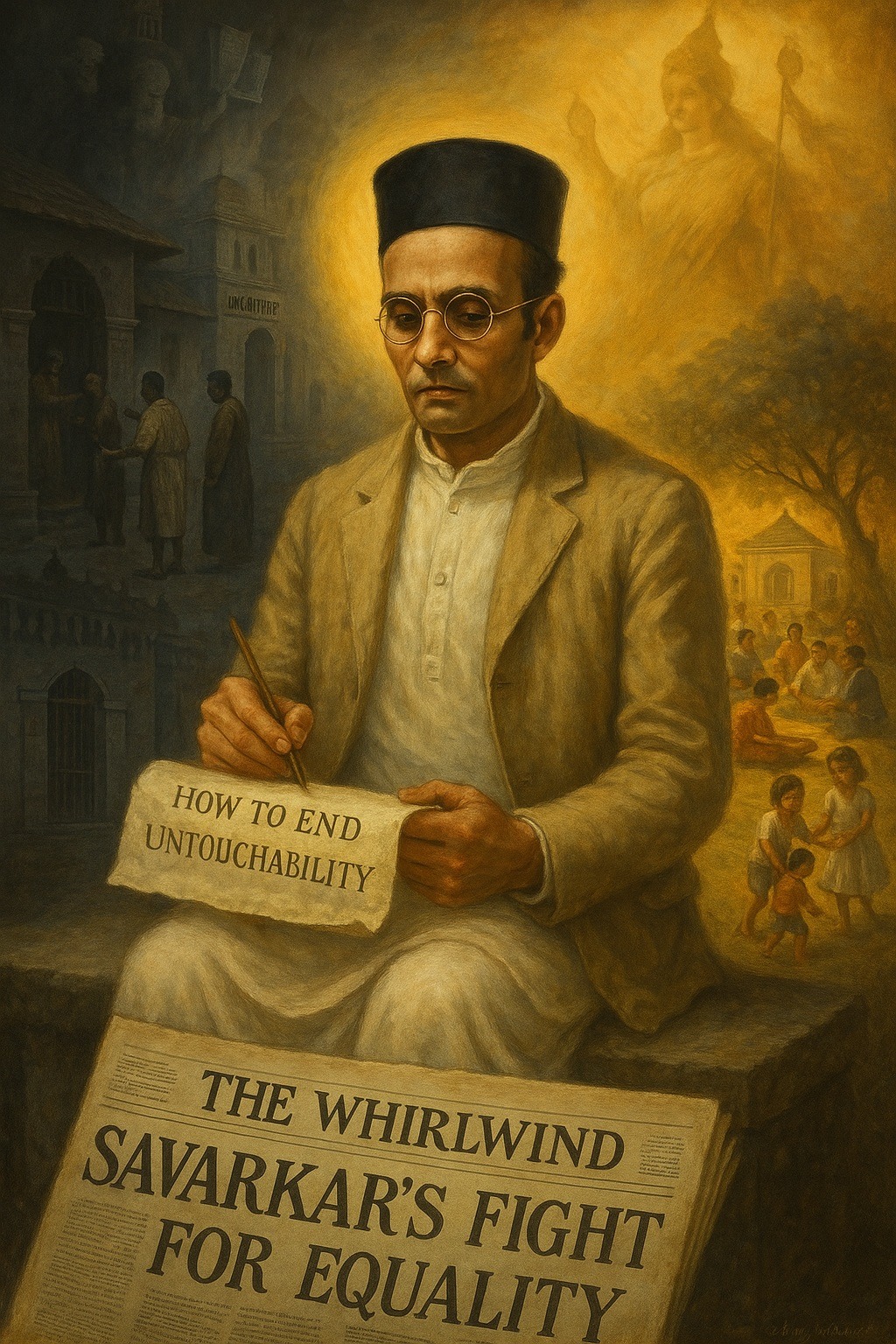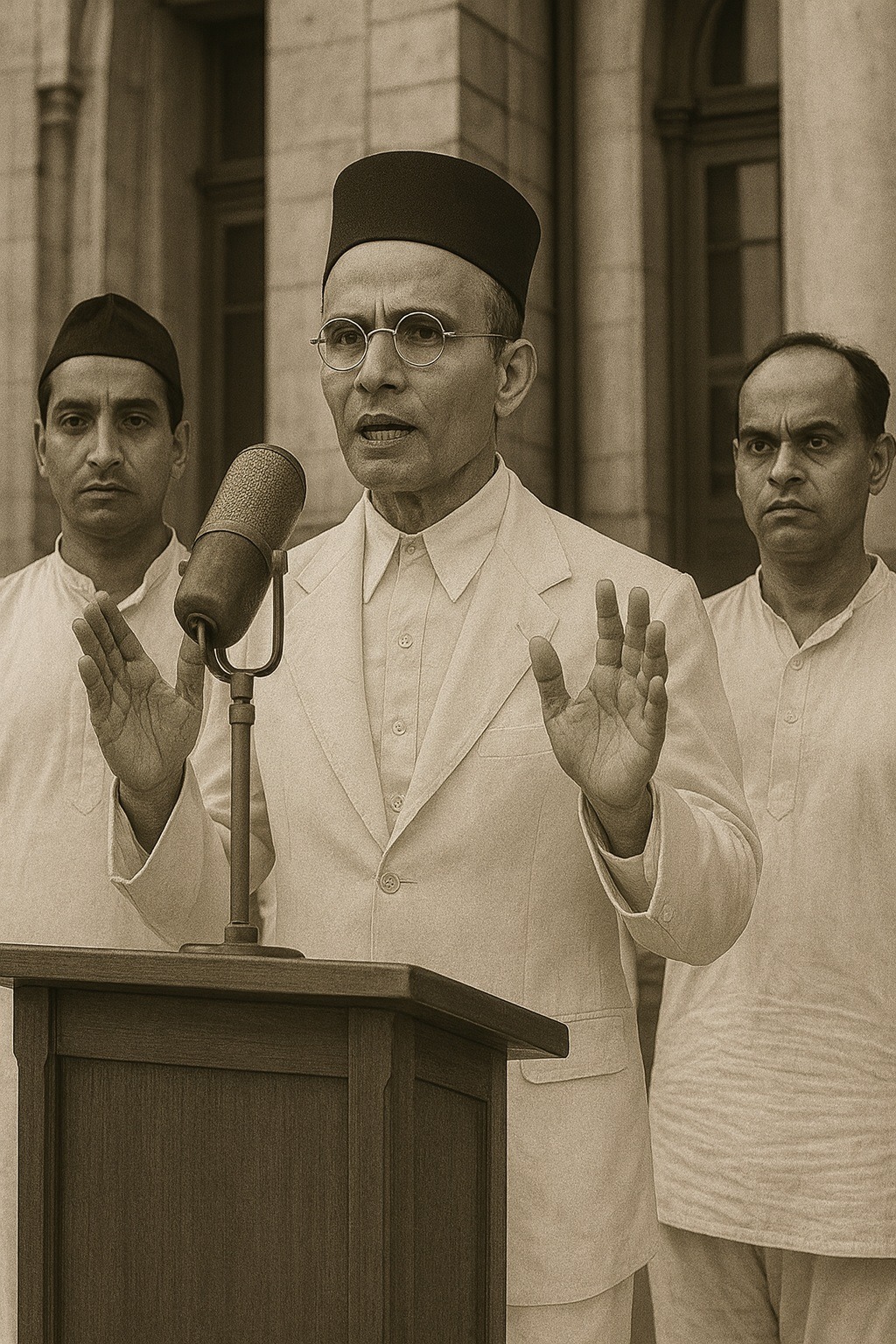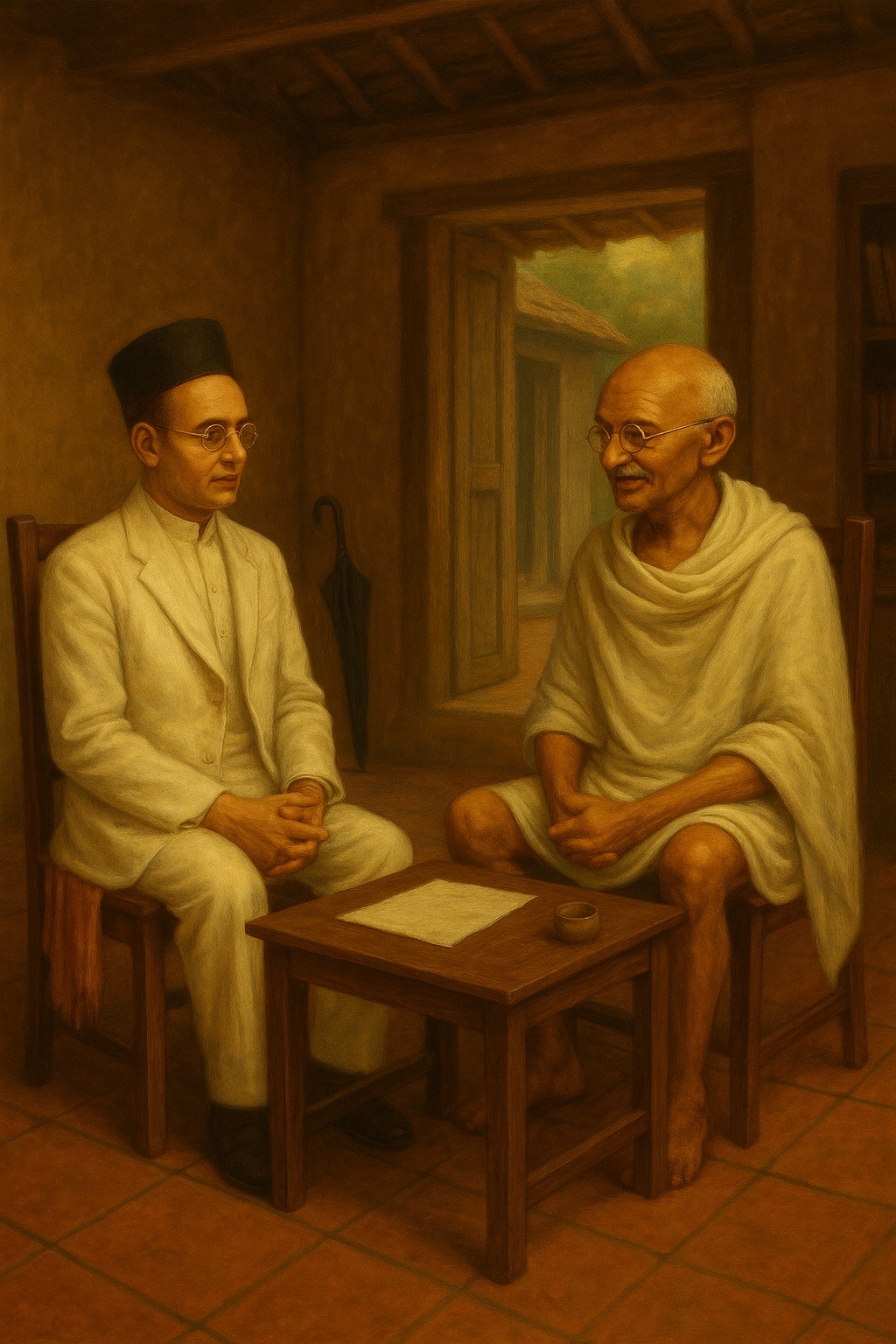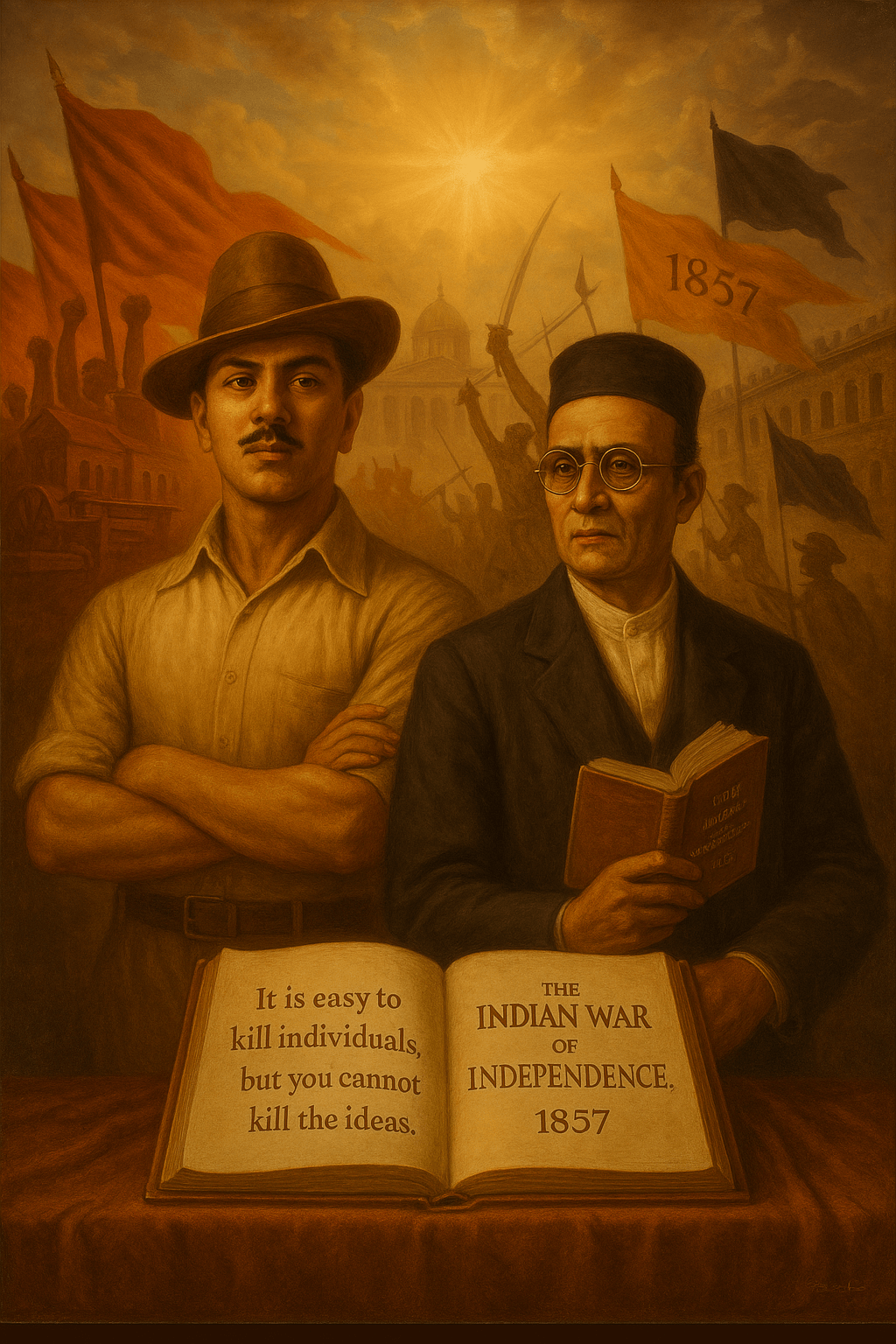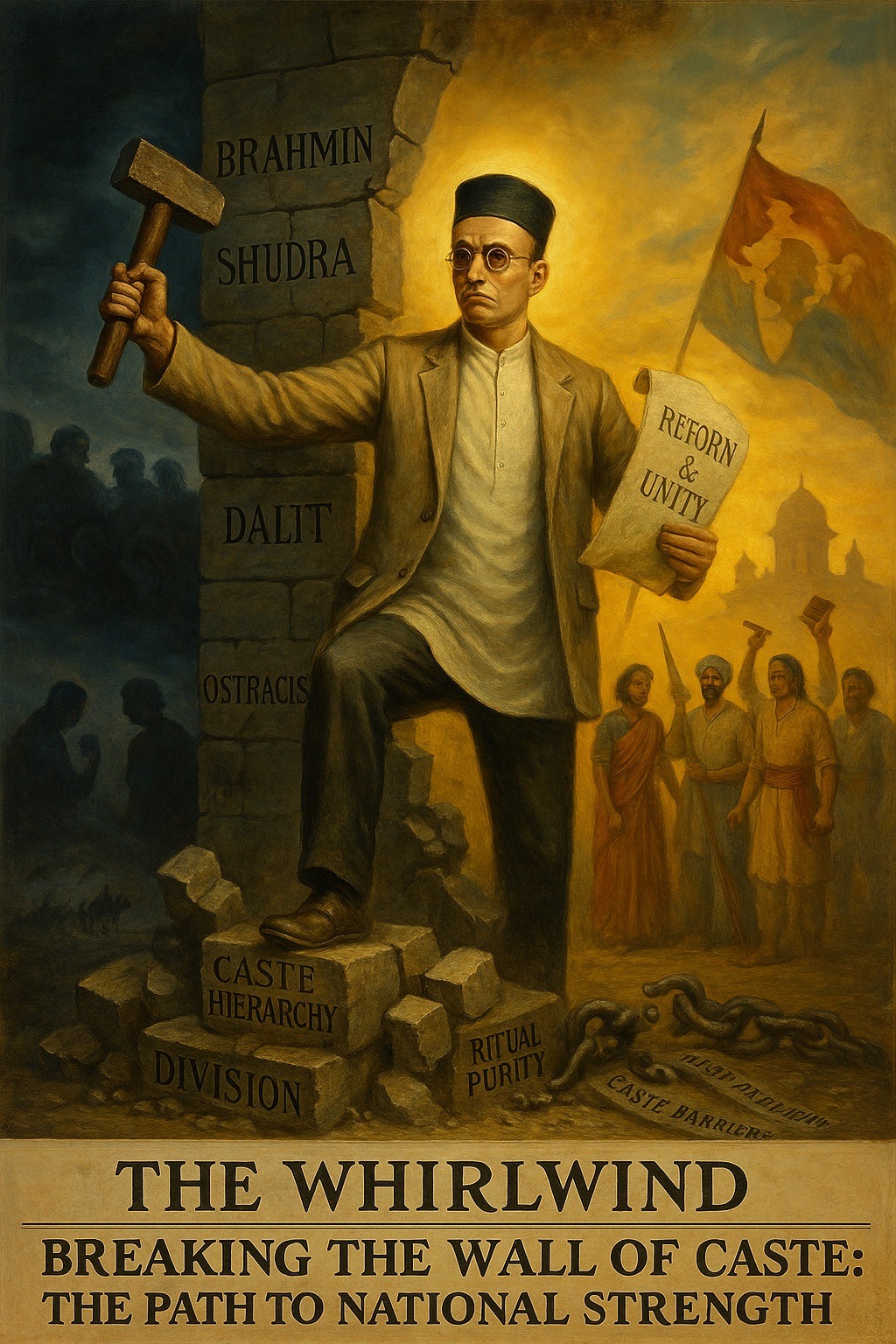Tag: Hindutva
-
Savarkar’s Coding of Hindutva; Metacode Rashtra, Part 10; Code Myth (3/20); Codeelement Shivaji and Pan-Hinduism (1/15) Myth and Nation The German cultural theorist Andreas Dörner once argued that the most powerful idea modern societies use to hold themselves together is the concept of the nation. Without it, no state can sustain a sense of unity.…
-
Every year on October 2, India observes Gandhi Jayanti, the birth anniversary of Mohandas Karamchand Gandhi—revered as the Mahatma and remembered worldwide as an apostle of non-violence. Yet this day also invites a provocative question: if Vinayak Damodar (Veer) Savarkar were alive today, would he have commemorated Gandhi Jayanti? Respect Without Reverence It is conceivable…
-
Political Dimension of Hindutva, Part 10 Vinayak Damodar (Veer) Savarkar, a pivotal figure in the Indian independence movement and a proponent of Hindutva, offered a unique and controversial vision of democracy and governance for post-colonial India. His ideas, as encapsulated in his first draft constitution, reflect his belief in an India dominated by a unified…

